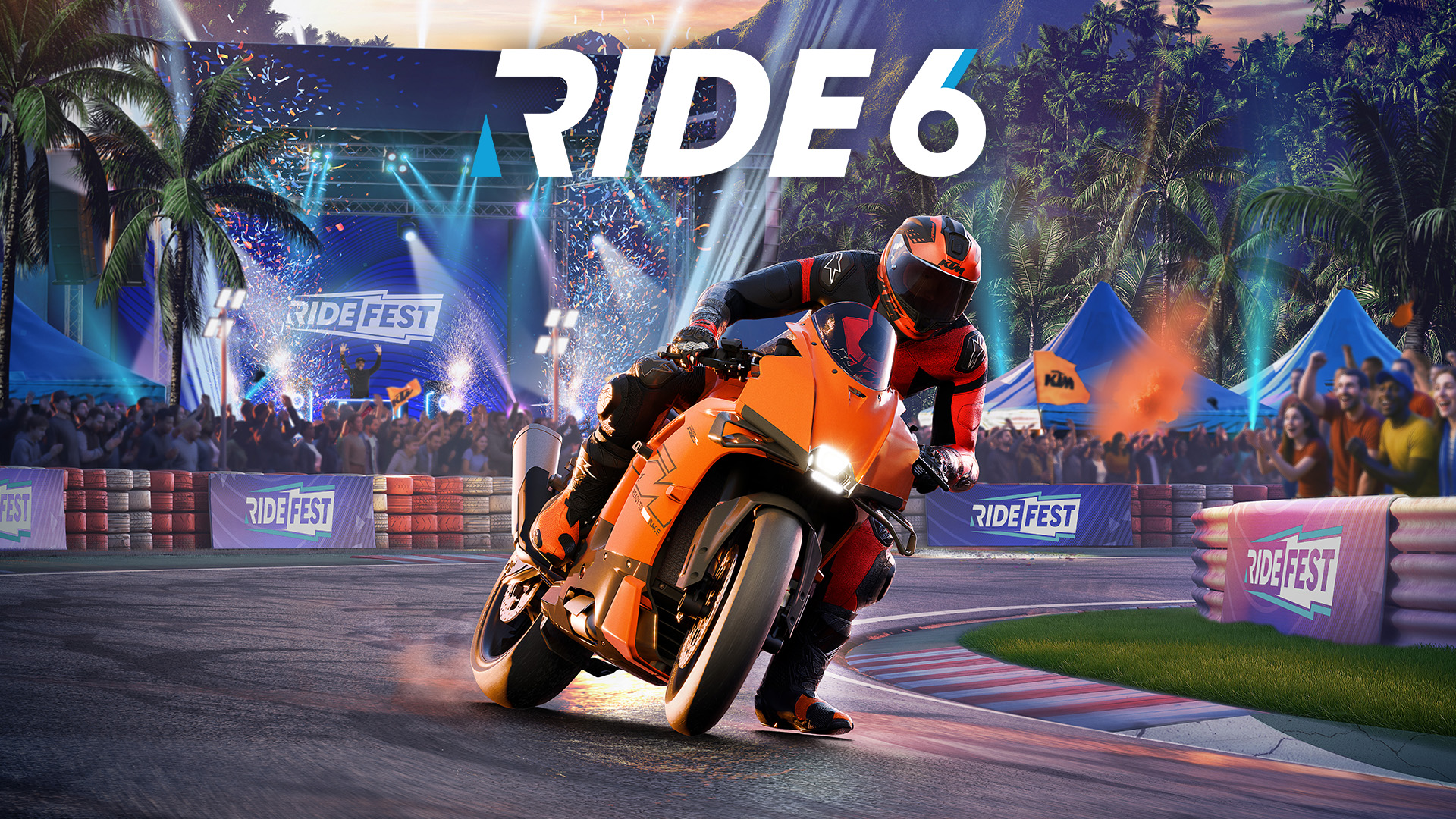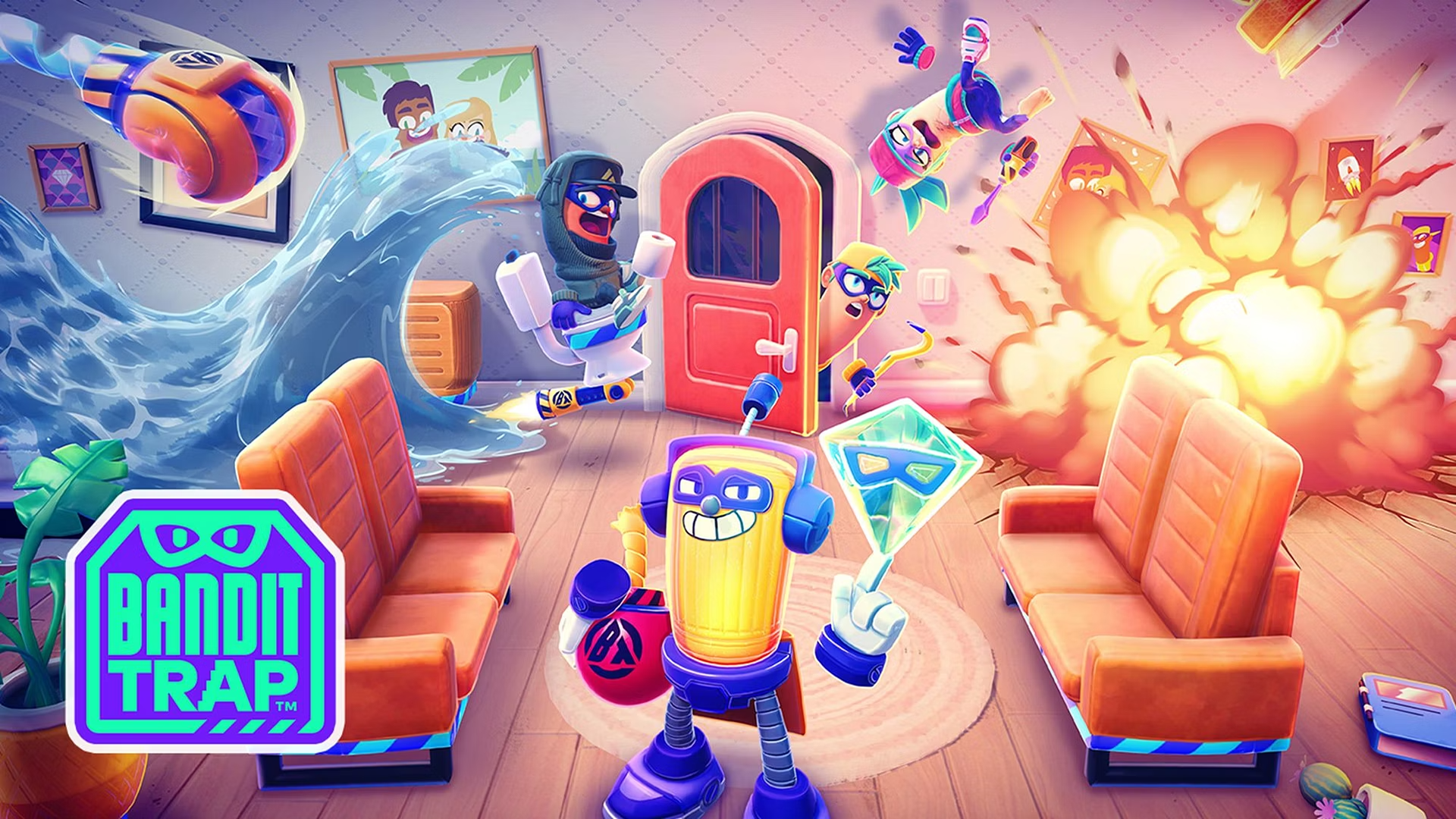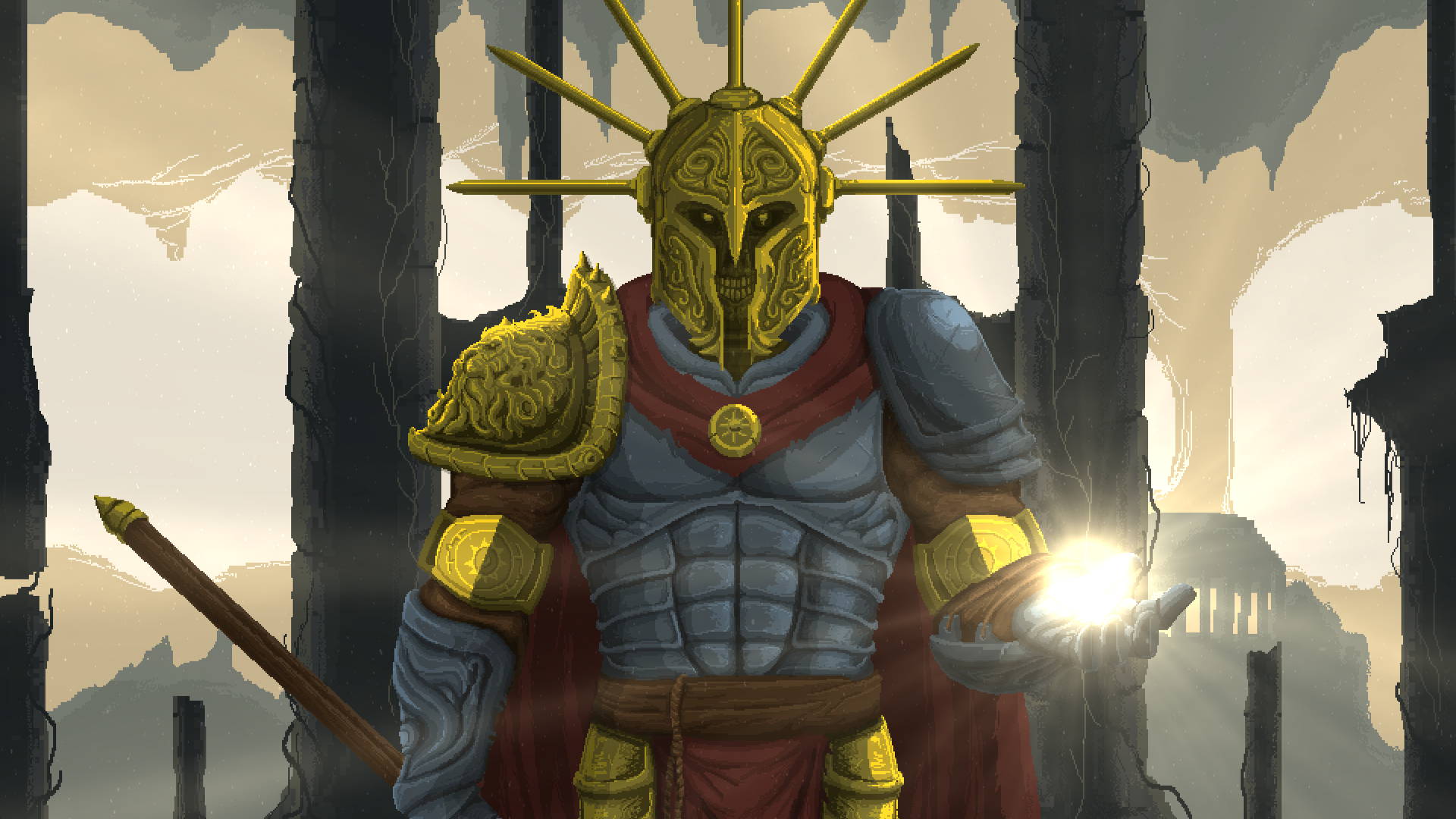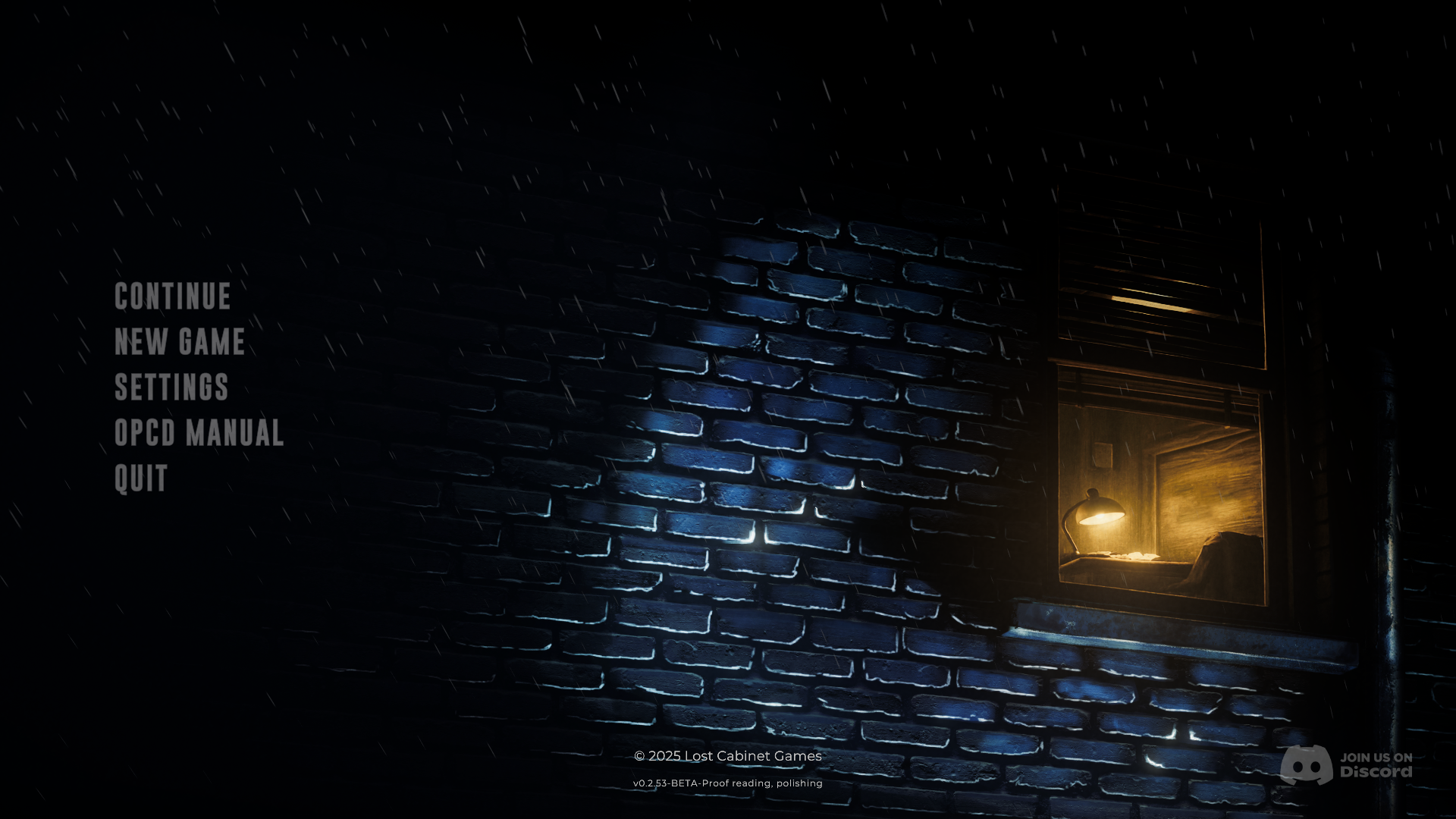Last Updated on Oct 27, 2025 @ 13:28:02 PM.
Not long ago, I got the amazing opportunity to talk to White Paper Games co-founder and studio head Pete Bottomley about their upcoming project I am Ripper as we discussed all manner of things. Whether it be the game’s main character, some of the gameplay aspects, or just the setting of the story, we made sure to talk about it all!
| Editor’s Note: |
|---|
| Due to this being a written/speech interview, some answers have been edited for clarity/brevity, without removing intent and context. |
A Bit of Information on White Paper Games

For those who are not aware of White Paper Games, they are a small developer from the UK based in the city of Manchester that has worked on numerous games throughout the years. In the past, White Paper Games brought players titles like Ether One, The Occupation, and DahliaView, each with their own mysteries, unique gameplay, and hard-hitting themes that blew gamers away.
Back in 2011, White Paper Games started out as a small group of individuals who came together to create short narrative experiences that would tell deep and impacting stories. Now, White Paper Games has grown as a studio, eventually growing to 15 developers who have created all kinds of experiences over the past few years.
Now, White Paper Games has returned with a new title in the form of I am Ripper, bringing together all the different game-developing techniques that White Paper Games has perfected over its many years of creating video games.
Pete Bottomley Goes In-Depth Regarding I am Ripper
What Led to the Setting Choice for I am Ripper, as From What We Can See During the Trailer on a Computer It Is Nearly Christmas in 1988?
What we’re trying to do with our games at White Paper is always base it on, you know, an area of the country during a specific time. So, whether it’s Ether One in like the 40s and 50s, The Occupation was, 1987. DahliaView again was, like, before 1988.
So we try to create these specific times, and it just helps us add detail and context to the world, especially if there’s anything going on in the UK. Although our games aren’t based on real-world fiction, it’s almost like we’re just creating our own universe of fiction. It is nice to set like certain details of the world on a specific time period, and so 1988 especially, you know, from the forensic evidence side of things that were going on in the the UK around that time, just the types of technology It wasn’t super advanced, and we didn’t have all the capabilities that we have now, but it was an area that was being developed at the time, so it’s still quite new in 1988.
So that was quite a large impetus, and then Christmas. Just because, you know, it helps us plant the game at a very specific time of the year. And you can imagine the juxtaposition of, you know, all the happiness and joy around that time of year with the juxtaposition of all the brutal things that are happening. So we just, we just thought that was an interesting setup for the game.

During the Announcement Trailer for I am Ripper, We Can See Some Gameplay of the Player Interacting With the Environment, and These Actions Being Incredibly Realistic, e.g., Removing the Tape From the Deceased Person’s Mouth by Wiggling It. Were There Many Challenges in Creating This?
Yes, that’s quite a huge technical challenge to get right, and it took many people to get that set up, but that’s what we think we can do really well at White Paper. We love tactile interactions, and so if anyone’s played games like The Occupation, we love the level of detail in the interactivity we can create in the environments, and you know, getting a human character and creating these types of interactions does take a lot of the character art, the rigging, the artist, the design, the code, you know, even the SFX and things like this; it’s literally every department coming together for these types of interactions.
We really enjoy that type of thing. We think it adds a level of immersion and gets the player right inside the investigation. So yeah, something we definitely like to do, and there’s a huge amount of challenge involved in doing that stuff.
During the Development of These Moments, Was It a Challenging Balancing Act to Keep These Interactions Both Tasteful and Interactive?
Yeah, definitely. There was a very, like, we had very real conversations at the start of development where we were just like, do we even want to do this? Is this too heavy, too brutal? Like, we did think, like, a content warning would be needed; we did have one in the trailer just to set the expectation at the outset, but, like, how that evolves in the game and the types of things we’re doing where we’re trying to, you know, playtest that and be mindful of this type of content.
But at the same time, you realize that as long as you’re being true to the story and the people in the world, and you’re not just doing it for any kind of shock value. Like, even, you know, on a BBC show like Silent Witness at 8 pm on a Friday, wherever or whenever it airs, I’m not exactly sure, but you know it’s definitely not—I mean, it’s BBC worthy, and you see these kinds of postmortem scenes in something like Silent Witness, and it does go into quite specific detail.
You know, I think audiences kind of respect when you treat that with care, but also I’ll show the day-to-day things that detectives and police have to go through. So, um, yeah, we thought it was definitely a challenging act. But it’s something we wanted to do, right and it’s the same in all of our games; whether we’re tackling, you know, dementia in Ether One or a missing child in DahliaView, there are always things that we just try to really put focus on a detail to make sure it is, you know, as tasteful and interactive as you say.
A Big Challenge When Creating an Investigative Game Like This Is Keeping All the Different Twists and Turns Together. Was This the Case for I am Ripper, or Have You Managed to Get a System Going After Your Previous Projects?

So it’s a mix of the two. For a while, we had the mentality that we should keep trying to build up a code base and help efficiencies on our next game. Between Ether One and The Occupation, we pretty much got rid of the code base. So we did get rid of the code base and start from scratch for a number of reasons. It was our first game, and, you know, we made some development choices that, you know, as you learn more, you want to architect things differently. So, that was an intentional choice, and also, we’re moving game engines from UnrealScript to C++.
So it inevitably needs the rewriting of systems. Then, from The Occupation to DahliaView, I think we did carry over quite a few things, like prompts and different code interactions, and things like this. We did still rewrite quite a large majority of the code base, you know, maybe like 50 of its Creator abstract number, but yeah, we were trying to reuse systems, and we did originally start Ripper by reusing a lot of investigative systems that we had from DahliaView in Ripper.
But you realize you’re just taking what you’ve done before and re-skinning it, and you actually question the design principles behind it. And so what we ended up doing on Ripper after a while of development is just scrapping the whole project, not the ideas, and the visual content, or anything like that. But just the way we’re implementing gameplay controls and things like this. So it’s more the philosophies and the design intentions that we take from game to game. And I think it is helpful for teams if they get rid of previous code that they’ve done before and rework it. Even though it’s in your head, it seems like you get better efficiencies by reusing code, but you end up coding yourself into a corner and reworking architectures that weren’t intended for this style of game. So I think it frees you up a lot if you do create new systems where possible.
Within the Trailer, We Can See That There Will Be Tough Decisions to Be Made by the Player. Will These Decisions Have an Impact on the Story’s Conclusion, or Just the Road They Will Take There?
So we have the concepts of some micro decisions and macro decisions in the game. So, you know, micro-decisions, things like, you know, how many sugars do you have in your cup of tea, and do you want to go through the door or through the window? You know, these kinds of small things that will have an impact on the world and have different outcomes, but they don’t structurally impact the game, whereas we then have some larger macro decisions where, you know, if you’re talking to a friend that’s played the game and you’re saying, “Oh, it was interesting when I did this and I didn’t expect that to happen,” and then they say, “Oh, that didn’t even happen to me; like, that didn’t happen to me. I didn’t even know that was a thing.”
You know, these are large story changes that you don’t even realize shifted the whole structure of the narrative. We do like to put those in there as well. So, um, there’ll definitely be tough decisions throughout the game, like there were in the trailer, and hopefully, that creates some interesting narrative outcomes that, you know, are different for each of the players.
During the Trailer, We Get a Glimpse of the “Player Character,” Samantha Harlow. Is There Anything You Can Tell Us About This Character, Obviously Avoiding Spoilers, or Do We Have to Wait Till We Get Our Hands on the Game?
Yeah, I think we will probably just wait till players get their hands on Samantha Harlow. Whether that be in the demo or in the main game, just so people can experience playing as Samantha Harlow and the things that she’s going through in the arc of the game when it’s out.
Within the Trailer, We Can See a Few Different Perspectives, Both First and Third Person. Will Both Perspectives Be Present in the Game, or Will Only One Perspective Be Used Throughout?

Yeah, so when I was talking about design philosophies before and taking them from game to game, something we really wanted to question is just the camera, and rather than saying, this is a first-person game or a third-person game. We’re definitely seeing this game with the camera as a tool to communicate different perspectives.
So you know, part of the game may be played in first person, and then you switched to an over-the-shoulder third-person camera and you know, you can even imagine different perspectives as well as just outside the first and third person and just making the camera just a useful thing for the scene that’s playing out and so, um, yeah that will definitely be something you’ll see uh, throughout the game.
Is There One Feature You Couldn’t Include in the Game That You Wish You Could Have Included?
So we’re still in development of Ripper so it’s not that we finished the game and it’s nearly out or anything like that. We do have a lot of things locked down for the game, and the overall structure is definitely there, and you know, a lot of the levels are online. So, you know, there is still time to include features that we’re really trying to get in, and generally, that isn’t a thing that we’re concerned about because, we have a principle at White Paper Studio, you know, if there’s is something that’s better for the player we should always do that rather than trying to think of like the cheaper or quickest solution.
Obviously, constraints, budget, all these things are a thing, but if there’s a feature that we feel like we need in the game, we’ll put that in the game, and then that just depends on the scope of what’s in that feature and things like this. So no, especially with this development, because we’re self-publishing at the moment, we’re very much like trying to plan out the game for exactly what we need, and sometimes you put a feature in and it just doesn’t work, and you need to scrap it. There are rarely features that we were trying to get included that we just can’t put in the game for whatever reason, because we are driving a lot of the development ourselves.
What’s Your ‘Biggest Win’ During Development?
Not sure yet, we’ll see when the game ships, but definitely just something that comes to mind. There is just how much the team has raised the production value, whether that’s, you know, the gameplay design, all the code, all the visual design, or the animation, or just, you can see a big leap in the studio’s ability to create games, and that’s not necessarily with a hugely bigger team. We generally include. Uh, three additional team members roughly per game.
That’s not something we stick to and try and instill. But, you know, it just so happened that we had, you know, six people on Ether One, nine people on The Occupation, and 12 on DahliaView. So we’re at 15 now, and this is our fourth game. So you know, it’s just a natural evolution of the studio, but you can see just a massive jump up in execution on this game, which is great.
How Are You Striking New Ground as a Studio and a Game, Rather Than Following Similar Patterns With Your Older Titles?

I think that just comes back to what I said previously about just questioning your design principles and what it is you want to say, like with each game, we always have a theme in mind and just something we want to communicate around so that’s always the starting point and then, you know, each member of the team kind of brings to the game what they’re most interested at in at a time so, that instantly just evolves with each game then yeah, trying to double down on the details when we do have that theme.
So I think inherently each of our games is very different than the other. I’m sure players will see that, but also each game just has like a White Paper Games feel to it as well. So it’s like the consistency of knowing what to expect from our studio, but also pushing ourselves with each title. Hopefully, players can see that with our work.
For the Fans Out There Who Have Played Previous Games From Yourselves, Are There Any Nods to These Games, for Example, the Occupation, or Are They Strictly Separate?
So in all of our games, we have like a world timeline, like a universe timeline that we’ve not made public and we don’t have properly articulated anywhere, which I think we should. Because we are now on our fourth game, there are people starting to make larger connections, so it is probably something we should put out. But yeah, like we’ll bring you know, characters from Ether One‘s mind collapse were in The Occupation, for example, and there’s nods to pinwheel in DahliaView and, you know, across all three, uh, Ether One, The Occupation, and DahliaView, there are nods to each of the other games.
So with Ripper being set in 1988 and obviously The Occupation was in 1987, we’re going to do a few tie-overs there. These are just literally like you say, small nods and just Easter egg-type of stuff, and just building this larger world fiction for our games, but it’s never that you would have had to have played one of our previous games to enjoy the current game. It’s just a small depth to the kind of world-building side if you understand character arcs and things like that from our other games.
A New Thing We’re Trying Here at Thumb Wars Is for Whenever We Speak to Those in the Gaming Industry. What Is One Misconception or Idea That People Have of What You Do, That Couldn’t Be Further From the Truth, and Ultimately, Really Annoys You?
You know, there’s not really anything that annoys me. There’s always going to be things that you don’t understand about the complexity of someone’s role, and it’s always interesting to find out what other people do and just the level of detail. Like, yeah, everyone in whatever career you are has these layers of complexity that a lot of people from the outside world wouldn’t understand and don’t have appreciation for, so that’s always just interesting to find out about more than anything. But yeah, I think games are still in such an early phase that people don’t really understand the complexity that goes into all the different spinning plates, and especially a game’s production, where you need so many different departments lining up.
It is definitely like a big big project, it’s almost like a large architectural project, where you need loads of different disciplines coming together to execute and keep things on time and on budget, and of the safety and Security issues that something like an engineer or an architect may have. But also, you know, they are complicated in their own right? So, I think more visibility will naturally come over the years as more people make games and it becomes more widely understood. But you know, developers posting development diaries and behind-the-scenes is always great to see that kind of stuff.
The Announcement Trailer Was Only Just Released a Few Weeks Ago, Announcing That It Is Currently Available to Wishlist on PC, Are There Any Plans for I am Ripper to Make Its Way Onto Consoles?

So yeah, we would definitely love to put Ripper on consoles. It’s something we have experienced doing, like all of our games have gone into the previous consoles. So, consoles are definitely something we want to look into doing, but we just aren’t currently putting any specific plans in place for consoles, and we need to speak to the platform holders of those relevant consoles. Just to see what plans we can put in place, but we would definitely love to do that for Ripper.
We Have to Ask, Even if We Cannot Get an Answer, Is There a Potential Release or Future Trailer Announcement Window Gamers Should Be Looking Out For, or Is There Still Work to Be Done?
So yeah no there’s nothing. We’ve literally just announced the game’s announcement trailer. That’s the main beat that we were looking to hit, and then you know, as more plans and we refine things more throughout the year, we’ll definitely put more announcements in place as we go.
For more Thumb Wars Gaming coverage, check out our article on how The Alters used AI without us knowing, but could it be so bad? Or our article on the cancellation of People Can Fly’s Outriders 2, along with one other project.
Liam is a Senior Editor, Writer, and Critic for Thumb Wars and has been working with the team since day one. Liam is a big fan of all things gaming, as you will catch him playing all of the new releases from every genre you can imagine. Whether you find Liam gaming just for fun or spending his free time streaming, you will always find a smile on his face when it comes to all things gaming.





